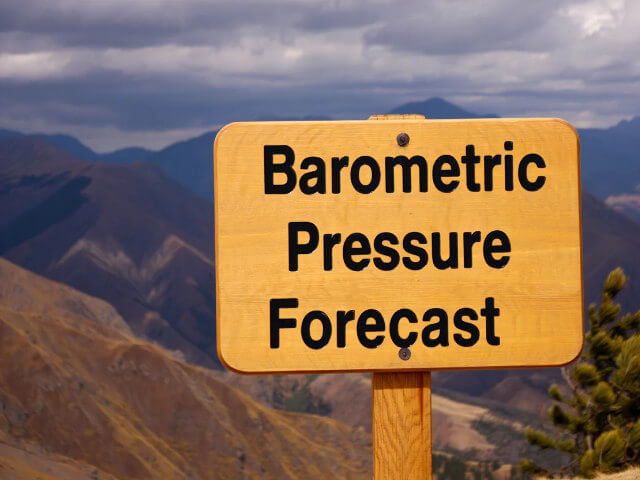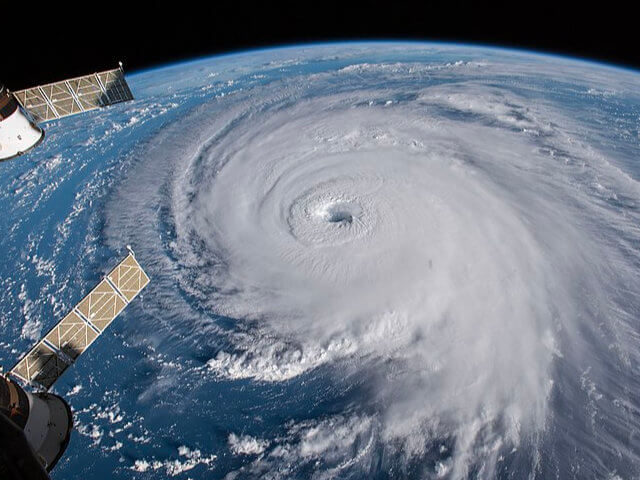Barometric Pressure Today
Instantly check today's barometric pressure, view historical data, and get forecasts for any location worldwide.
Are you near New York ?
Find out what the barometric pressure is today near you by clicking on the suggested city above or finding it on the list of more than 5000 cities.
Today's high pressure
Today's low pressure
What is Barometric Pressure
Barometric pressure, also known as atmospheric pressure, is the weight of the air in the Earth's atmosphere. It is the force exerted by the atmosphere onto everything within it, including the Earth's surface, objects, and living things.
Changes in barometric pressure are often associated with changes in weather, with high pressure often indicating clear skies and good weather, and low pressure indicating clouds, precipitation, and potentially stormy weather.

Barometric pressure can also affect the behavior of some people and animals, with changes in pressure potentially causing headaches, joint pain, and other symptoms.
Barometric pressure is measured using a barometer, with units such as inches of mercury (inHg) or millibars (mb) commonly used. Standard atmospheric pressure at sea level is typically around 1013.25 mb or 29.92 inHg.
Barometric pressure can also be used to calculate altitude, with lower pressure indicating higher altitudes and higher pressure indicating lower altitudes.
This can be useful for navigation, especially in areas where GPS or other electronic navigation methods may not be reliable.
Overall, atmospheric pressure, plays an important role in both the weather and the health and well-being of living things on Earth, making it a crucial element to monitor and understand.
Pressure fluctuations
(Data above represents the highest/lowest recorded pressure in our monitored cities for today.)High and low readings
What are high and low barometric pressures? Barometric pressure above 1023 hPa (30.2 inHg) when adjusted to sea level is considered high pressure, while below 1009 hPa (29.8 inHg) is considered low.
Typically, in areas inhabited by humans, the barometric pressure will remain within the normal range of 1009 to 1023 hPa (29.8-30.2 inHg).
The global average barometric pressure at sea level is approximately 1013.25 hectopascals (hPa), or 29.92 inches of mercury (inHg). This is often referred to as one standard atmosphere (atm) of pressure.
However, it's worth noting that barometric pressure can vary depending on location and weather conditions.
- High Pressure: above 1023 hPa (30.2 inHg)
- Normal Range: 1009-1023 hPa (29.8-30.2 inHg)
- Low Pressure: below 1009 hPa (29.8 inHg)
Recently Added Cities
Check out the cities we've recently added to our list of monitored locations. If you can't find the city you're looking for, please use the search button at the top of our site.
Barometric Pressure Forecast
Barometric pressure, or atmospheric pressure, plays a key role in weather patterns and even how we feel. A rising pressure often means clear skies, while a rapid drop can signal storms ahead.

With our barometric pressure forecast, you can track these changes in real time and plan your day with confidence.
Get Accurate, Localized Forecasts
We provide real-time barometric pressure data and forecasts for 5,000+ cities worldwide.
Whether you're checking today's pressure or tracking trends over time, our pressure change alerts help you stay informed.
Stay updated—check your local barometric pressure forecast now!
Barometric Pressure Headaches
Changes in barometric pressure can cause headaches in some people.

When there is a drop in the barometric pressure, such as before a storm, it can cause the expansion of the blood vessels and other side effects, resulting in increased pressure in the head.
However, not everyone is affected by changes in barometric pressure, and there can be other factors that cause headaches as well.
Barometric Pressure During a Hurricane
Barometric pressure in a hurricane tells us how strong or weak the storm is. When the pressure is low, the hurricane is intense, and when it's high, the storm is weaker.

Normally, the air pressure at sea level on a calm day is around 1013.2 millibars. But during a hurricane, at the center called the eye, the pressure can drop a lot, sometimes below 900 millibars.
This means the air in the eye is lighter than the air around it, creating a big difference in pressure. This causes air to rush from high to low pressure, making strong winds and thunderstorms.
Hurricane Wilma, Gilbert, and Rita
For example, in Hurricane Wilma in 2005, the pressure dropped to 882 millibars, the lowest ever recorded in the Atlantic.
Other powerful hurricanes with low pressures include Hurricane Gilbert (888 millibars) in 1988, the Labor Day Hurricane (892 millibars) in 1935, and Hurricane Rita (895 millibars) in 2005.
These storms were all extremely destructive and reached Category 5, the highest level on the hurricane intensity scale.
Seasonal Allergies
You can track seasonal allergies just like barometric pressure! If you're in Europe, check out this site for today's pollen count in major cities. It covers over 1,000 places, including London and Copenhagen, so you can stay informed and ready.
UV Index
Along with watching barometric pressure, don’t forget about UV rays. You can check the UV index for today to help you stay safe. If you’re going somewhere sunny, remember to wear sunscreen, a hat, and take breaks in the shade.